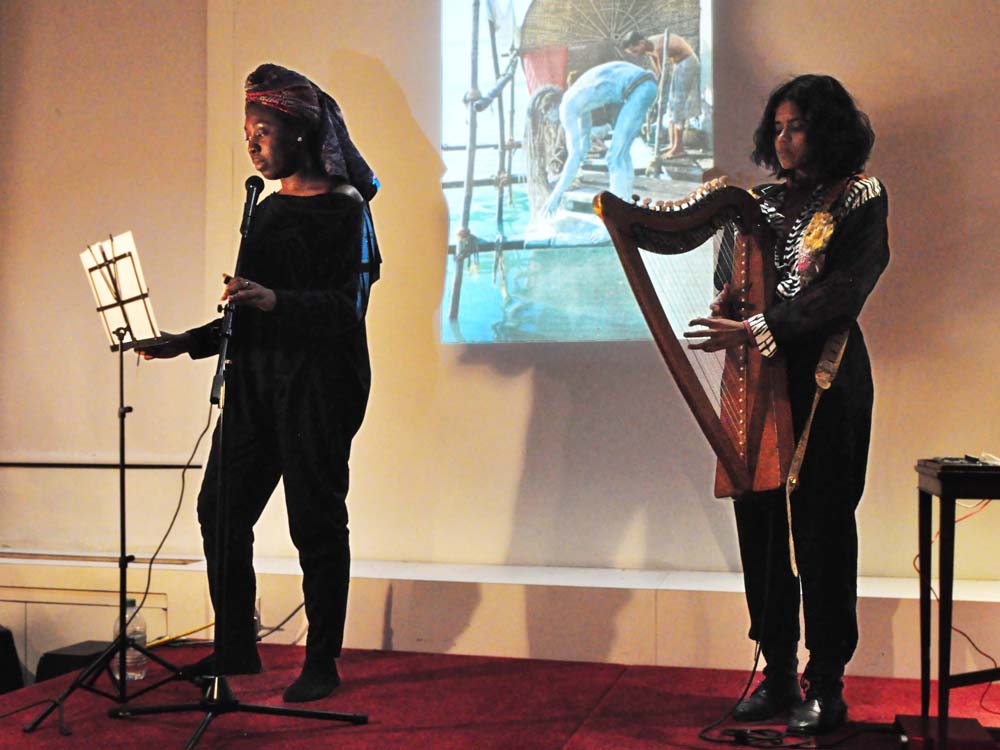First Glimpse of My Brilliant Friend Adaptation, Harper Lee Lawsuit, and More
Thirty-five of the best recent books by women; appraising a book in less than thirty seconds; Ann Beattie on writer’s block; and other news.
Jump to navigation Skip to content
Thirty-five of the best recent books by women; appraising a book in less than thirty seconds; Ann Beattie on writer’s block; and other news.
Earlier this year, a supermarket chain in France held a promotion that slashed prices of Nutella, the popular hazelnut and chocolate spread, by 70 percent causing shoppers in some stores to stampede as they scrambled to snatch up the bargain. Think of one of your favorite food items, perhaps a gourmet good that you treat yourself to only occasionally but wish you could have every day. Write a lyric essay about this item, integrating your personal history and specific memories with references to researched tidbits or fun facts.
The Book Thief author Markus Zusak announces new novel; the Florentine haunts of Robert and Elizabeth Barrett Browning; Claudia Rankine on artistic freedom; and other news.
Submissions are currently open for the inaugural Chautauqua Janus Prize. An award of $2,500 and publication in Chautauqua will be given annually for a short story or essay by an emerging writer. The winner will also be invited to give a lecture at the Chautauqua Institute in Chautauqua, New York, this summer. Kazim Ali will judge.
Named for the Roman god Janus, who looks to both future and past, the new prize honors writing “with a command of craft that renovates our understandings of both” and seeks formally inventive works “that upset and reorder literary conventions, historical narratives, and readers’ imaginations.”
Using the online submission system, submit up to 15,000 words of fiction or nonfiction with a $20 entry fee by March 31. Writers who have not yet published a full-length collection are eligible. Stories and essays must either be unpublished, forthcoming this year, or published no earlier than April 2017.
The Chautauqua Institution sponsors interdisciplinary art and educational programs, events, awards, and residencies throughout the year. In addition to the Janus Prize, the institution awards the annual Chautauqua Prize and Editors Prize for writers. Visit the website for more information.
Photo: Kazim Ali (Credit: Tanya Rosen-Jones)
Fiction and creative nonfiction writers, polish up your stories, novels, and essays! The deadlines are approaching for the following contests, each of which offers a prize of at least $1,000 and publication.
Fourth Genre Steinberg Essay Prize: A prize of $1,000 and publication in Fourth Genre is given annually for an essay. Entry fee: $20. Deadline: March 20.
New South Writing Contest: A prize of $1,000 and publication in New South is given annually for a story or essay. Alissa Nutting will judge. Entry fee: $15 (includes a one-year subscription). Deadline: March 21.
Enizagam Literary Award: A prize of $1,000 and publication in Enizagam is given annually for a short story. Rachel Khong will judge. Entry fee: $20. Deadline: March 23.
Cleveland State University Poetry Center Essay Collection Competition: A prize of $1,000 and publication by the Cleveland State University Poetry Center is given annually for an essay collection. Brian Blanchfield will judge. Entry fee: $28. Deadline: March 31.
Bosque Press Fiction Prize: A prize of $1,000 and publication in bosque is given annually for a short story or a novel excerpt by a writer over the age of 40. Timothy Schaffert will judge. Entry fee: $22. Deadline: March 31.
Lascaux Review Flash Fiction Prize: A prize of $1,000 and publication in Lascaux Review is given annually for a work of flash fiction. Entry fee: $10. Deadline: March 31.
Narrative Winter Story Contest: A prize of $2,500 and publication in Narrative is given annually for a short story, a short short story, an essay, or an excerpt from a longer work of fiction or creative nonfiction. A second-place prize of $1,000 is also awarded. Entry fee: $26. Deadline: March 31.
Gemini Magazine Short Story Contest: A prize of $1,000 and publication in Gemini Magazine is given annually for a short story. Entry fee: $7. Deadline: March 31.
Martha’s Vineyard Institute of Creative Writing Prose Prize: A prize valued at $1,600 will be given annually to a fiction writer to attend a weeklong seminar at the Martha’s Vineyard Institute of Creative Writing Summer Conference in June. Robert James Russell will judge. Entry fee: $25. Deadline: March 31.
Visit the contest websites for complete guidelines, and check out Grants & Awards database and Submission Calendar for more contests in poetry, fiction, and creative nonfiction.
A case for teaching Little House on the Prairie in schools; Mario Vargas Llosa’s liberal politics; book towns; and other news.
Shakespeare & Co. to open three new stores; Luís Alberto Urrea on his reading habits and favorite books; Sherman Alexie declines award in wake of sexual harassment claims; and other news.
Miriam Atkin is a poet and critic based in New York whose work has been largely concerned with the possibilities of poetry as a medium in conversation with avant-garde film, music, and dance. She teaches literature and creative writing at the City University of New York and is curator of the Ekphrazein reading series at the Archive for Research in Archetypal Symbolism. Her poetry chapbook, Fours, was published by the Kaf Collective in 2017. Over the last decade she has written essays, reviews, and poems for various magazines online and in print.
 Interdisciplinary practice has been a major concern of my work ever since I moved to New York in 2008 to immerse myself in its creative scenes as a first step toward writing about art professionally. I began attending events at a range of venues like Judson Memorial Church, Roulette, Poets House, the Stone, e-flux, and White Columns. I was surprised to find that I was one of few regulars at these spaces who were not practitioners in the medium at hand. I had spent my twenties in Rust Belt cities where the relatively small number of people in the arts necessitated that we all went to all the events. Despite our differing creative vocations, we were generally hungry for the kind of thinking and conversation that art-making provokes and we knew that our diverse aesthetic languages shared enough between them to be mutually understandable. But now, in New York, I found an art world that was firmly ghettoized.
Interdisciplinary practice has been a major concern of my work ever since I moved to New York in 2008 to immerse myself in its creative scenes as a first step toward writing about art professionally. I began attending events at a range of venues like Judson Memorial Church, Roulette, Poets House, the Stone, e-flux, and White Columns. I was surprised to find that I was one of few regulars at these spaces who were not practitioners in the medium at hand. I had spent my twenties in Rust Belt cities where the relatively small number of people in the arts necessitated that we all went to all the events. Despite our differing creative vocations, we were generally hungry for the kind of thinking and conversation that art-making provokes and we knew that our diverse aesthetic languages shared enough between them to be mutually understandable. But now, in New York, I found an art world that was firmly ghettoized.
Thus, it was when I encountered the cross-disciplinary, multigenerational, and broadly humanist scope of the program at the Archive for Research in Archetypal Symbolism (ARAS), I knew I had discovered a site for heterogeneous intellectual exchange that was rare in the city. I learned about the space—which is located at the C. G. Jung Center in East Midtown in New York City—after reading in the first installation of Ekphrazein, a series of events featuring artists in various mediums presenting work in response to a central thematic archetype. The theme of the inaugural event, which happened in late 2013, was the sun archetype. In accordance with the format for the reading, I chose an image related to the sun from ARAS’s collection, which served as a visual counterpoint for my writing. I loved the conversation between text and image that Ekphrazein facilitated, and the cross-disciplinary nature of the work I saw presented there was reiterated in the heterogeneity of the audience, which included psychologists, historians, anthropologists, and so on.
 I have since become the curator of Ekphrazein, and on February 16, we hosted our sixth reading held in the Jung Center’s first floor event space, with support from Poets & Writers’ Readings & Workshops program. The thematic focus of the night was ashes, and each artist performed against a projection of their chosen ash image. The program began with multimedia artist Akeema-Zane reading poetry while accompanied by harpist Elsz. Poet Geoffrey Olsen was second on the bill, which concluded with a performance of improvised music and dance featuring Jason Kao Hwang (violin), Devin Brahja Waldman (saxophone), Megumi Eda (dance), and Yoshiko Chuma (dance). The presentations ranged between painstaking poetic craft and the playful abandon of free jazz, with each set activating a charged intimacy between artist and audience. Afterwards we all went up to ARAS for a candlelit wine reception, where I observed the enthusiasm with which audience members approached performers to engage in conversation about the night. It was energizing to see new acquaintances made and new doors opened to potential creative fusions across disciplines. I look forward to seeing what works and alliances this uncategorizable series will galvanize in the future.
I have since become the curator of Ekphrazein, and on February 16, we hosted our sixth reading held in the Jung Center’s first floor event space, with support from Poets & Writers’ Readings & Workshops program. The thematic focus of the night was ashes, and each artist performed against a projection of their chosen ash image. The program began with multimedia artist Akeema-Zane reading poetry while accompanied by harpist Elsz. Poet Geoffrey Olsen was second on the bill, which concluded with a performance of improvised music and dance featuring Jason Kao Hwang (violin), Devin Brahja Waldman (saxophone), Megumi Eda (dance), and Yoshiko Chuma (dance). The presentations ranged between painstaking poetic craft and the playful abandon of free jazz, with each set activating a charged intimacy between artist and audience. Afterwards we all went up to ARAS for a candlelit wine reception, where I observed the enthusiasm with which audience members approached performers to engage in conversation about the night. It was energizing to see new acquaintances made and new doors opened to potential creative fusions across disciplines. I look forward to seeing what works and alliances this uncategorizable series will galvanize in the future.
Support for the Readings & Workshops Program in New York City is provided, in part, by public funds from the New York State Council on the Arts, and the New York City Department of Cultural Affairs, with additional support from the Frances Abbey Endowment, the Cowles Charitable Trust, and the Friends of Poets & Writers.
Photos: (top) Miriam Atkins (Credit: Rijard Bergeron). (bottom) Poet Akeema-Zane and harpist Elsz (Credit: Jamie Thomas).Right-wing activists threaten to burn down Berkeley bookstore; Mohsin Hamid on the importance of reading work aloud; A Wrinkle In Time film adaptation released; and other news.
“Learning is more like a sport than we think,” writes Jim Sollisch in “Piano Lessons: Do Writers Need a Teacher or a Coach?” in the March/April issue of Poets & Writers Magazine, an essay about the importance of practice when developing creative writing skills, as with any other skill or craft. Think of a former teacher, coach, or mentor who played a part in teaching you a specific skill or subject. What memories do you have of your interactions with this teacher during your period of learning? Write a personal essay that zeroes in on one particular memory and how your emotions during the learning process affected your life in ways beyond the relationship and that teaching moment.